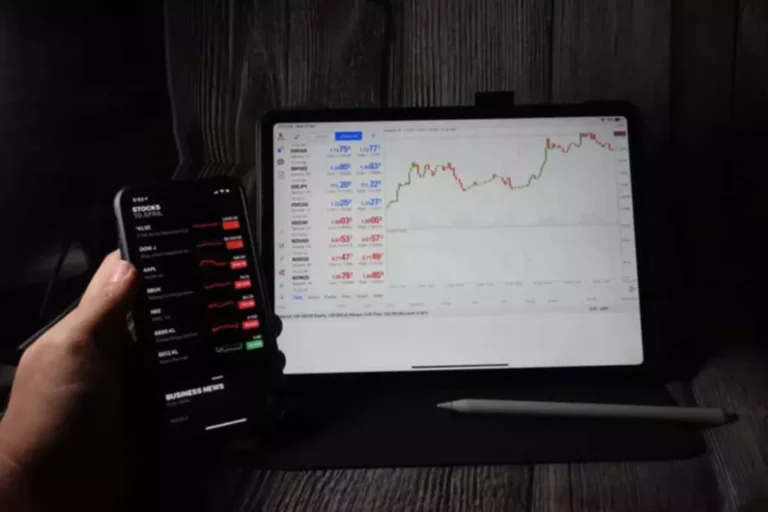Content
Many https://www.xcritical.com/ self-custody wallets are now providing a variety of advanced features and new opportunities for people who wish to make better use of their assets. If you prefer to keep things simple and don’t mind a third party between you and your crypto, custodial wallet provider options are plentiful. In fact, most companies providing custodial wallet services are well-known and established crypto exchanges like Coinbase, Kraken and Crypto.com. As we’ve seen, one disadvantage of using non-custodial wallets relates to accessibility and ease-of-use.
What is a non-custodial wallet?
Users are exposed to counterparty risk, as they rely on the service Digital asset provider to safeguard their funds and execute transactions securely. Understanding the differences between these two types of wallets is essential for anyone navigating the space of cryptocurrency storage and management. Ultimately, the best non-custodial wallet for you is the one that fits your needs the best. KuCoin wallet is a great all-around product with different functionalities. Exodus will be a good choice if you’re looking for an easy-to-use wallet with built-in exchange support. We can’t talk about non-custodial wallets without mentioning what makes them non-custodial.
- The downside is that you rely on the security of the service, and you don’t have actual ownership of your funds.
- They’re a solid choice for folks who’ve been around the block a few times with crypto and prioritize their privacy, security, and having complete control.
- You can start buying, selling, swapping, and managing millions of digital assets.
- This seed allows you to regain access to your funds if you lose your wallet or access.
- New users purchasing crypto may get lost in the weeds of the custodial vs non-custodial wallets debate.
- The tradeoff between the custodial and non-custodial wallets usually lies in having less responsibility of safeguarding your crypto vs having more direct control.
Computer Science > Cryptography and Security
The reason for this delay is the interference of custodial vs non custodial wallet the intermediary in providing permission for every transaction. On the other hand, non-custodial wallets are suitable for people with basic hands-on experience with crypto-based apps or platforms. Someone new to the crypto space may initially find it a bit technical and confusing. For crypto users seeking the freedom offered by a non-custodial wallet there are a number of trusted providers in addition to BitPay Wallet.
Title:Custodial and Non-Custodial Wallets
This means that you have complete control of your crypto assets and are responsible for their security. Non-custodial wallets, on the other hand, give you complete control of your private keys. This means you’re responsible for backing them up and keeping them safe, but you also own your funds outright. We recommend using a non-custodial wallet if you are looking for more security and peace of mind, and a custodial wallet if you’re looking to quickly buy and sell cryptocurrencies.
Losing a private key or mnemonic seed can make the user lose access to their wallet, with no backup and recovery possibility. With this covered, let’s look into the limitations of non-custodial crypto wallets to make a neutral decision. Another advantage of custodial wallets is that the central authority managing your wallet offers backup facilities.
In contrast, transactions using non-custodial wallets are directly reflected on the blockchain in real time. Here, the wallet interacts directly with the blockchain network without any need for third-party authorization. While we consider the non-custodial wallets, the absence of intermediaries plays a crucial role in faster wallet-based transactions. Not only that, the total cost involved is also significantly reduced as there are no exchange fees. On the other hand, creating a non-custodial wallet is as easy as ordering a pizza.
Imagine wallets that not only simplify financial transactions but also allow individuals to communicate and easily share wallet addresses with contacts. Perhaps these wallets enable users to form the basis of new social networks based on blockchain technology. This crypto platform offers a wide array of trading options and presents opportunities for users to earn profit on their stored digital holdings. KrakenAlthough this platform may not be as popular as other Binance, this custodial wallet crypto exchange has maintained a strong reputation in the industry.

According to the Zion Market Research report, the global crypto wallet market size is expected to rise to $46.72 billion by 2030 with a CAGR of 24.23%. There’s no difference between a self-custodial (self-hosted or self-sovereign) wallet and a non-custodial wallet. Let’s now look at the potential benefits and drawbacks of a custodial wallet. With crypto excitement at an all-time high, Valora’s CEO Jackie Bona has compiled five of the top industry trends, emerging solutions, and key takeaways from EthDenver 2024. Software, hardware devices, hot and cold wallets, mobile apps, paper wallets, and many more.

You will also have to worry about losing your funds if this third-party provider is hacked. Your private key, on the other hand, functions similarly to a secret password in that it signs transactions and grants access to your wallet. While cryptocurrencies are digital, you can print your private and public key crypto wallets on paper, accessed via desktop apps, or stored offline in hardware wallet devices.
The main difference between custodial and non-custodial wallets is the third-party presence. In the case of the non-custodial wallet, third parties do not store the assets or private keys. Such a wallet is just a client (interface) to a decentralized network that helps users generate private and public keys and store them on their devices. Generally, these platforms’ providers do not need licenses or authorizations to operate because they do not act as the custodians of their users’ assets. Examples of non-custodial wallets include Metamask, Trust Wallet, Coinomi, and Exodus.
Instead, they provide you with a “passphrase” – a list of words that act as a recoverable and understandable backup to restore and protect your private keys to access your cryptocurrencies. In this article non-custodial in the context of blockchain wallet means a type of wallet that permits users to own their private key, which are in encrypted storage. In the case of custodial online crypto wallets, all the sensitive user data is stored in hot and cold storage, which are often hacked by data intruders. Because of this, the security level is low in custodial, unless the authoritative party implements strong security measures. Users entrust their funds to the service provider, relinquishing control over their private keys and relying on the provider’s infrastructure for managing transactions.
Understanding the key differences between self custody wallets and custodial wallets is essential for making an informed decision about which type best suits your needs. First be absolutely certain to create a back-up of the 12-word recovery phrase, if you lose this phrase you will not be able to access your funds in the chance that your device is lost or stolen. However, you should make sure that the wallet you use supports the type of crypto you wish to store. For instance, Ceffu, which is both regulated and compliant, offers standard insurance for corporate Binance accounts. It also offers crime insurance coverage and other bespoke insurance coverage requirements available upon request. Ceffu also uses multi-signature wallets (multisig), a protocol that removes centralized risks by requiring multiple parties to approve crypto transactions before they can be carried out.
With both types of wallets available on web browsers and mobile apps, managing your money is convenient no matter where you are—as long as there’s an internet connection. There have also been cases where crypto inheritance was unrecoverable because the original crypto owner only held the private keys. You can avoid such incidents by sharing access to your assets with a custodian. To comply with regulations, most custodial platforms will require you to complete a know-your-customer (KYC) or anti-money laundering (AML) verification.
A custodial wallet is a cryptocurrency wallet where private keys to the wallet are held by a third party. The most common type of custodial wallet is an exchange wallet, where the exchanges hold private keys on behalf of their users. For an added safety net, some non-custodial wallets can work together with hardware wallets. These gadgets are great because they store your private keys without touching the internet at all – giving hackers no chance to get their hands on them. When using a custodial wallet, someone else is looking after your keys and cash which means trusting another party completely with your assets. This setup makes these wallets more likely to be targeted by hackers since everything is stored in one place online.
